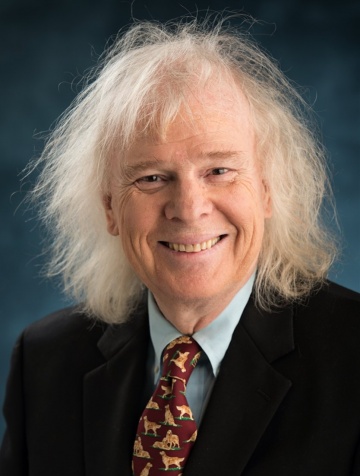Columbia College | Columbia University in the City of New York
Columbia Shaped Every Aspect of This Professor’s Life

Markovits is the recipient of the Verdienstkreuz 1. Klasse, the Cross of the Order of Merit, First Class, among the highest honors bestowed by the Federal Republic of Germany on a German or foreign citizen. His memoir, The Passport as Home: Comfort in Rootlessness, was recently published by the Central European University Press; Markovits dedicates a chapter to his experiences at Columbia as an undergraduate and a graduate student, which have shaped every aspect of his life.
What were you like when you arrived at Columbia?
An arrogant and ignorant young man who thought that he knew it all and then some. My father and I had immigrated to the United States in July 1960, but we had to return to Vienna in early September for a number of reasons. I was terribly dismayed because my 11-year-old self had fallen in love with New York City and wanted to remain there forever. Happily, my father arranged for me to spend every summer in New York, staying with my uncle and aunt who lived on the corner of Broadway and 92nd Street. That was how I discovered Columbia’s majestic campus. I loved spending hours in the main reading room of Butler Library; even reading comic books and magazines in this amazing environment wooed me to become an academic.
When it came time to apply to universities, the College was obviously my first choice, by dint of its academic excellence and world-famous reputation, but also because over these summers it had become my very own private campus of sorts: Andy’s own university!
Still, I remained completely ignorant about the American postsecondary education system. Anchored in a continental European vision, I believed university to be a purveyor of professions and not the liberal arts; thus, I came to view college as a nuisance, an obstacle that one had to overcome as quickly as possible. The College offered me nearly three semesters of advanced standing by virtue of my Viennese secondary education, so I did not bother to appear for freshman Orientation. Who needs orientation when one deems oneself to be a European know-it-all? This arrogance anchored in the hubris of ignorance and the ensuing rush to reach “real” education as quickly as possible made me finish five semesters in four, certainly the greatest regret of my academic life — perhaps one of the gravest in my life as a whole.
What do you remember about your first-year living situation?
Arriving with two huge, heavy suitcases in the lounge at Furnald Hall one day before classes began in September 1967. I asked the only person sitting in that stately place to help me cart my bags to Room 214. He did and became a lifelong friend. 214 was a single room with the window opening right onto Broadway, flush alongside the stairs leading ascending passengers of the 1 train to daylight. I stayed in this room for both of my years in the College and loved it. I did all my studying there (which was pretty much in all my waking hours) when I was not in Butler’s main reading room. I also taught myself to type in 214 Furnald, a skill that, as a recipient of an elite European secondary education, I never possessed.
What Core class or experience do you most remember, and why?
I actually do not remember any of those precisely because I saw them as unnecessary ballast that I did not need Columbia to teach me. Deranged but very real!
However, I will forever cherish learning life-altering ideas from the fabulous professors whose courses I took and who shaped my professional and personal future. A big shout-out to Joseph Rothschild ’52, GSAS’52; Douglas Chalmers; Roger Hilsman; Marshall Shulman SIPA’48, GSAS’59; Alexander Dallin SIPA’49, GSAS’53; Lewis Edinger GSAS’51; Seweryn Bialer; and Mark Kesselman. Ira Katznelson ’66 and Allan Silver became cherished lifelong friends!
Did you have a favorite spot on campus, and what did you like about it?
I came to like the Butler reading room so much in my pre-Columbia youth that I have continued visiting it on my occasional New York lecture or conference gigs. I never go there to check out a book, merely to sit and be awed by it just like I was as a teenager.
What, if anything, about your College experience would you do over?
Very simple: Be a full-fledged undergraduate for four years, experiencing college life at one of the greatest academic institutions in the world! I would like to have soaked in the wisdom and knowledge that the College exuded rather than being burdened by five courses per semester — not to learn in depth and with relish but to pass exams with the sole purpose of expediting my departure. Still, I will always wear my Columbia gear with pride and joy! Go Lions!
More “Take Five”
- 1 of 32
- ›

